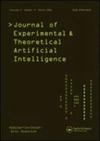Understanding the intent behind sharing misinformation on social media
IF 1.7
4区 计算机科学
Q3 COMPUTER SCIENCE, ARTIFICIAL INTELLIGENCE
Journal of Experimental & Theoretical Artificial Intelligence
Pub Date : 2022-02-16
DOI:10.1080/0952813X.2021.1960637
引用次数: 1
Abstract
ABSTRACT Several studies have been conducted in annotating and collecting the misinformation spread on various social media sites. The misinformation spread during COVID-19 pandemic increased many folds. Understanding the reasons and intent of the misinformation during COVID-19 is a crucial task. Existing approaches have not focused on understanding the intent behind sharing misinformation in the first place. To understand the intent, we introduce a new dataset MisMemoir that apart from annotating misinformation, also collects the social context and site history of the user sharing misinformation. Utilising the established benefits of game theory in social media behaviour analysis, we deploy two-person cooperative games to understand how prominent positive feedback cues like likes and retweets are in motivating an individual to share misinformation on the platform Twitter. Experimental results demonstrate that the spread of misinformation’s primary intent is the intentional/unintentional manoeuvre to increased reach and possibly a false sense of accomplishment. Empirically, we show that in a competitive environment like social media, feedback cues like retweets and comments assume the role of ‘attention’ payoff that significantly affects the strategy of a user on Twitter to share misinformation intentionally.理解在社交媒体上分享错误信息背后的意图
在对各种社交媒体网站上传播的错误信息进行注释和收集方面进行了一些研究。在2019冠状病毒病大流行期间,错误信息的传播增加了许多倍。在2019冠状病毒病期间,了解错误信息的原因和意图是一项至关重要的任务。现有的方法并没有首先关注于理解分享错误信息背后的意图。为了理解其意图,我们引入了一个新的数据集MisMemoir,该数据集除了注释错误信息外,还收集了分享错误信息的用户的社会背景和网站历史。利用博弈论在社交媒体行为分析中的既定优势,我们部署了两人合作游戏,以了解像点赞和转发这样的积极反馈线索是如何激励个人在Twitter平台上分享错误信息的。实验结果表明,错误信息传播的主要意图是有意/无意的操作,以增加覆盖面和可能的虚假成就感。我们的经验表明,在社交媒体这样的竞争环境中,转发和评论等反馈线索承担了“注意力”回报的角色,显著影响了Twitter用户有意分享错误信息的策略。
本文章由计算机程序翻译,如有差异,请以英文原文为准。
求助全文
约1分钟内获得全文
求助全文
来源期刊
CiteScore
6.10
自引率
4.50%
发文量
89
审稿时长
>12 weeks
期刊介绍:
Journal of Experimental & Theoretical Artificial Intelligence (JETAI) is a world leading journal dedicated to publishing high quality, rigorously reviewed, original papers in artificial intelligence (AI) research.
The journal features work in all subfields of AI research and accepts both theoretical and applied research. Topics covered include, but are not limited to, the following:
• cognitive science
• games
• learning
• knowledge representation
• memory and neural system modelling
• perception
• problem-solving

 求助内容:
求助内容: 应助结果提醒方式:
应助结果提醒方式:


